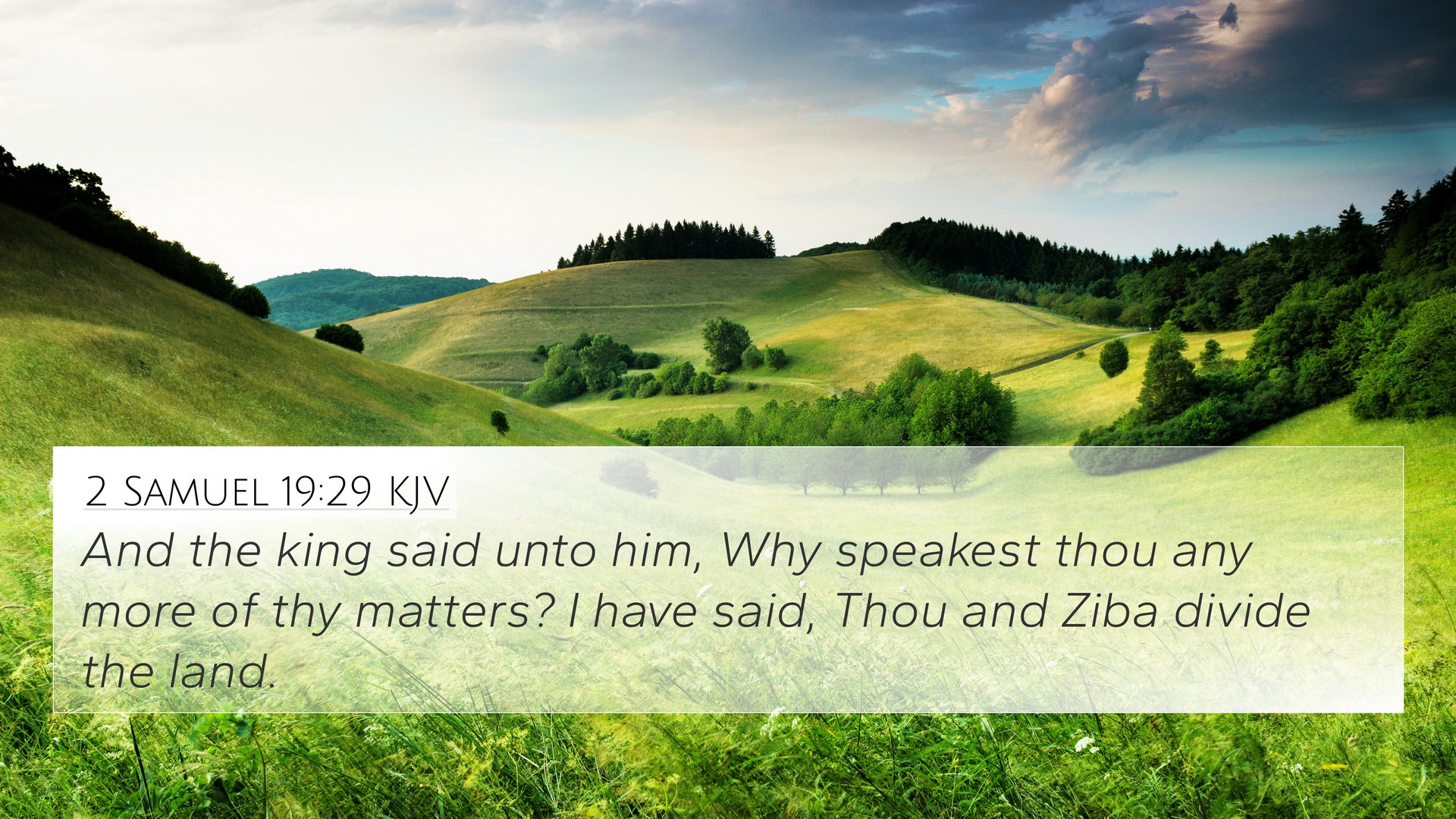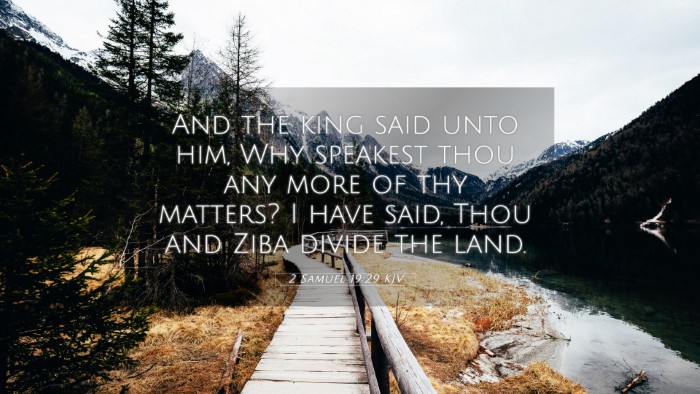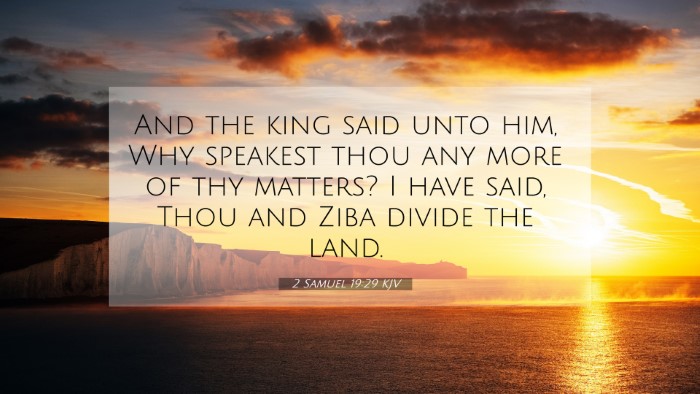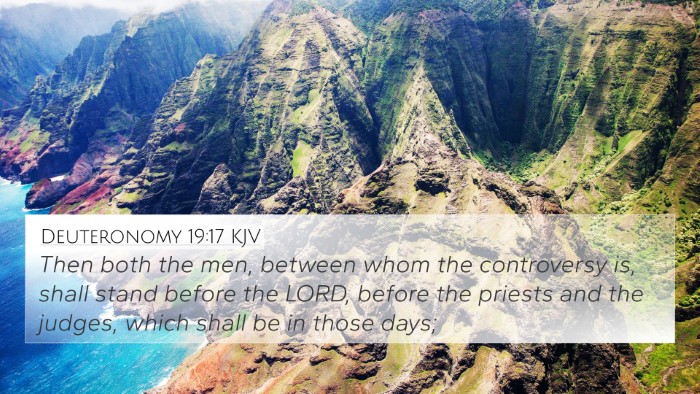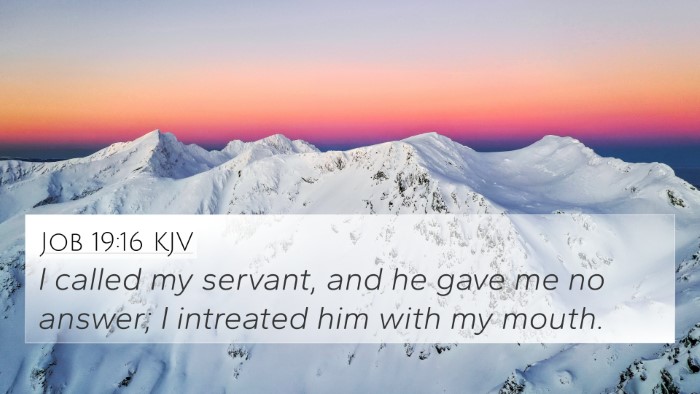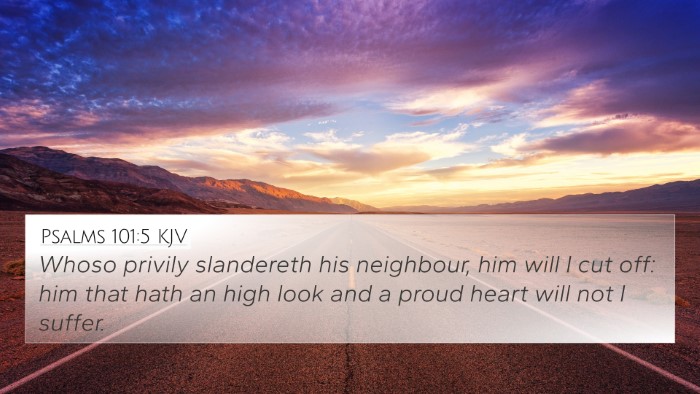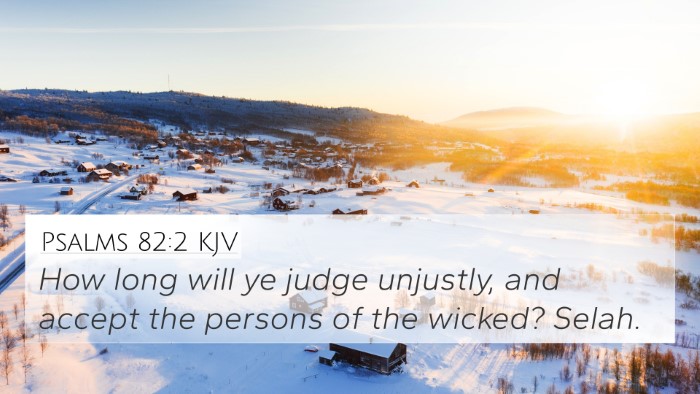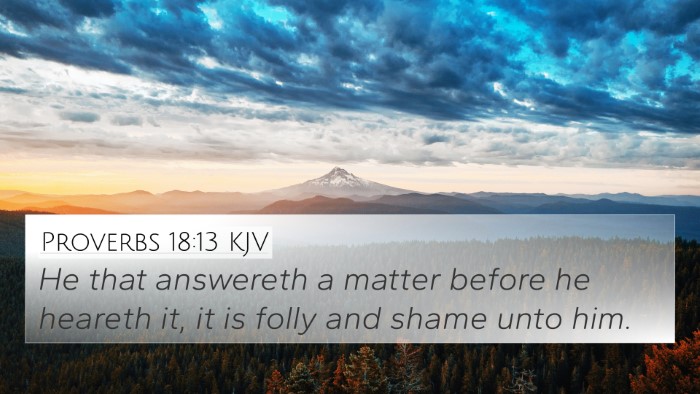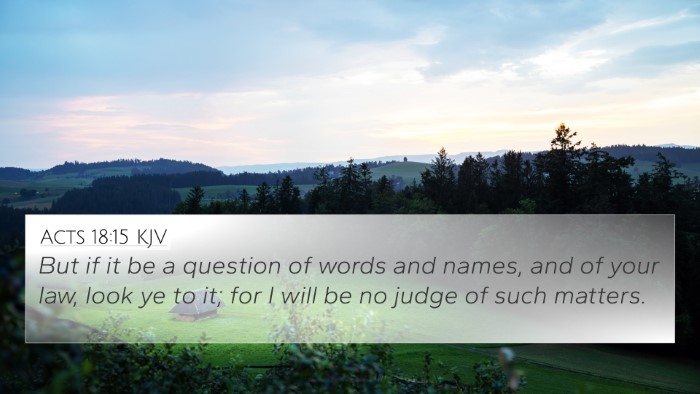Understanding 2 Samuel 19:29
2 Samuel 19:29 states: "And the king said unto him, why speakest thou any more of thy matters? I have said, thou and Ziba divide the land." This verse comes at a significant moment in David's reign and gives insight into themes of justice, resolution, and reconciliation.
Contextual Overview
In 2 Samuel, David is addressing issues of loyalty and property in the wake of Absalom's rebellion. This particular verse is part of a larger narrative where King David is responding to Mephibosheth and Ziba regarding land ownership.
Commentary Insights
-
Matthew Henry's Commentary:
Henry suggests that David's words are not merely a dismissal but a recognition of the complexity in the case of Mephibosheth. The division of the land symbolizes a larger principle of equity in judgement amidst suspicions and accusations.
-
Albert Barnes’ Notes:
Barnes emphasizes the importance of the decision made by David as a king who seeks to prevent further conflict. His declaration to divide the land speaks to both justice and the need to move past previous grievances to restore order and peace.
-
Adam Clarke's Commentary:
Clarke interprets this verse as showing the wisdom of David in dealing with complicated personal conflicts, opting for a solution that acknowledges both parties' interests while avoiding further divisions among his supporters.
Key Themes and Lessons
The verse touches upon vital themes including:
- Justice: David's method aims at fairness and represents a king seeking justice amidst turmoil.
- Resolution: The resolution between Mephibosheth and Ziba is crucial for communal harmony.
- Reconciliation: It symbolizes the need to reconcile past grievances for a unified future.
Bible Verse Cross-References
Understanding 2 Samuel 19:29 also involves exploring related scriptures that share thematic or contextual elements:
- 2 Samuel 9:7: "And David said unto him, Fear not: for I will surely show thee kindness for Jonathan thy father's sake..." - This establishes the initial relationship between David and Mephibosheth.
- 2 Samuel 16:3: "And the king said, And where is thy master's son?" - Reflects David’s concern for Mephibosheth amidst rebellion.
- 1 Chronicles 8:34: "And the son of Jonathan was Meribaal; and Meribaal begat Micah." - Providing genealogy and context about Mephibosheth’s lineage.
- James 1:5: "If any of you lack wisdom, let him ask of God..." - This verse underscores seeking divine wisdom in decisions.
- Isaiah 1:17: "Learn to do well; seek judgment, relieve the oppressed..." - Advocates for justice and right actions.
- Matthew 5:9: "Blessed are the peacemakers: for they shall be called the children of God." - Highlights the need for reconciliation.
- Romans 12:18: "If it be possible, as much as lieth in you, live peaceably with all men." - Encourages maintaining peace among all parties involved.
Comparative Bible Verse Analysis
To truly grasp the meaning of 2 Samuel 19:29, one must consider the connections between Bible verses that elucidate themes of justice and reconciliation in both the Old and New Testaments. The insights drawn from these connections enhance our understanding of how timeless God’s principles are in guiding human behavior.
Conclusion
2 Samuel 19:29 presents a nuanced view of leadership, justice, and reconciliation, pivotal elements that resonate through the scriptures. Engaging with this verse enables us to uncover broader scriptural themes and invites further exploration through Bible cross-referencing systems, fostering a deeper comprehension of inter-Biblical dialogues.
